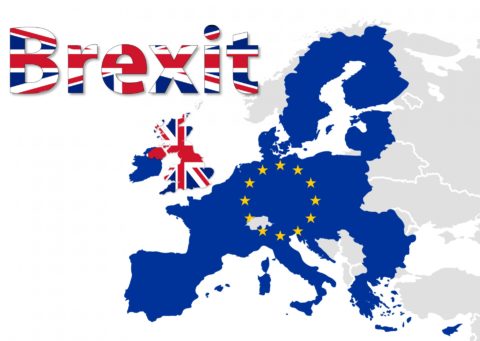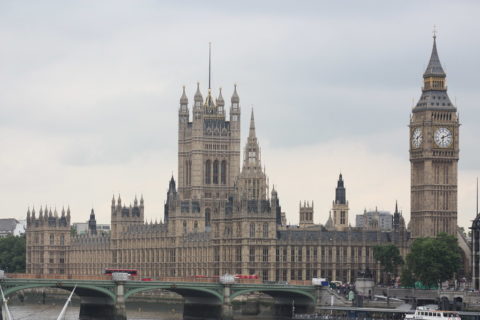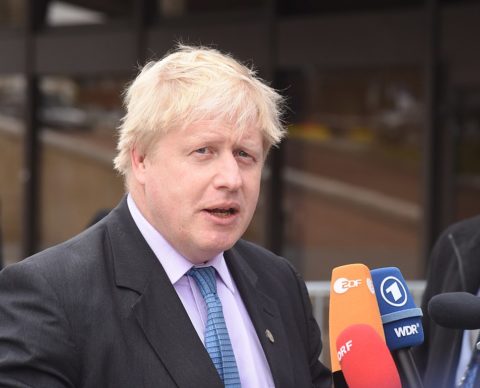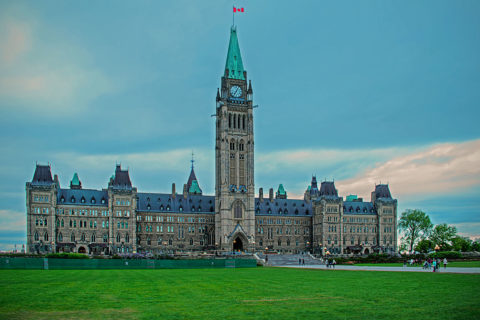In his latest email newsletter, Sean Gabb discusses the Brexit situation:

The consensus in the media appears to be that Parliament is out of control, and is attempting to stop our exit from the European Union – even if this means tearing up every settled constitutional norm. I disagree. No doubt, the House of Commons is filled with some very trashy people, and I have little doubt most of them would like to stay in the European Union. Even so, they are acting collectively with strict constitutional propriety. For the first time in my life, they are earning their inflated salaries and expenses and bribe allowances.
Three years ago, we vote to leave the European Union. The margin was respectable, though not substantial. The Government was therefore given one reasonably difficult job. This was to detach us from the institutions of the European Union, while respecting the wish of a large majority for continued good relations with the European Union. This was difficult, but hardly in the same class as trying to win a war against the greatest military power in the world, or dismantle an Empire, or even reform the structures and financing of local government. The most obvious compromise was to rejoin EFTA and remain in the Single Market, while negotiating a longer term set of arrangements. Most people, I think, would have accepted such a compromise. I would, and I may have written about it at the time.
Instead of doing this, however, Theresa May loaded us with endless vague promises, while negotiating in secret with the European Commission. At the end of two years and six months, she presented us with a draft Withdrawal Agreement that was universally unacceptable. I will not rehearse why it was unacceptable. Everyone has read it for himself, or read a fair summary and critique. When this was presented to the House of Commons, it was overwhelmingly rejected. Why the Labour Party and the various open Remainers voted against it is less important than that they did vote against it. This is why we have a Parliament. It is there to stop the Executive from acting against the public good. It is there to make the voice of the people heard.
Our present set of crises blew up when it emerged that Theresa May had allowed no one to think about any alternative to her Agreement. Her only solution to losing the first vote was to arrange for another, and then for another. Each time, her Agreement was rejected – and rejected, I repeat, for good reasons. But, thanks to her wickedness or stupidity, there were only three options available to Parliament. One was to swallow her Agreement. Another was to leave without any deal. The other was to give up on leaving – to cancel the Referendum result.
[…]
It may be that the plan was to unveil a fraudulent leaving agreement, and to whip this through Parliament, leaving the rest of us to grumble about it for the next generation, though unable to do anything about it. If so, the plan has failed. The problem is not that our ruling class does not want to be bound by the will of the people – this is hardly a novel discovery. The problem is the crude inflexibility of our rulers. The EFTA compromise I and most other people would have accepted three years ago would have allowed any number of quiet understandings in London that let things as they matter to our rulers go on much as before. Instead, they wanted complete victory on their terms, and they planned for no other outcome. No competent strategist or negotiation behaves like this. The Tory ultras did not behave like this in 1832 or 1911. Labour did not behave like this after 1983. On the whole, we are lucky that we have asked these people only to arrange a departure in good order from a customs
union. They might instead have messed up something really important.
These crises have been a useful learning experience. Theresa May and the interests she has been chosen to front are both wicked and stupid. Speaking for myself, I think our Members of Parliament – wretched creatures if these may be in themselves – for doing their job and lifting the stone to show the pale and stinking bugs in full light of day. Sooner or later, we shall leave the European Union. This will be a messier and more acrimonious departure than it needed to be. But I suspect that the debate between Leavers and Remainers is turning to a shared demand for our will to be obeyed by the Executive. This is a much wider matter than our membership of the European Union. Leaving is now a symbol of who has the final say in this country. The longer our decadent rulers try to hold firm, the more radical the demands will grow for a reconstruction of the system.
I have no idea what will happen in the next few weeks. But I am glad we have the Parliament that we have.
Alex Noble feels the situation is going pretty much exactly how the EU wanted it to go from the start:
For a few months now I have written about how the EU’s plan is increasingly transparent, and it is becoming possible to anticipate their every move.
I believe we are now so close to the outcome they wargamed a year ago, that the final week is now almost completely predictable.
For what it’s worth, here we go.
[…]
So this coming week, the EU will water down or remove the backstop they never cared about, and the British people will be betrayed into vassalage by their Vichy Parliament.
That’s right – another “breakthrough” is imminent, although I suspect the EU will once again trot out the gap-toothed Belgian bumpkin Verhofstadt to pretend to find the whole affair insulting, so we remember to be properly grateful to his paymasters.
All other options now are just scare tactics – No Brexit, No Deal, long extensions, a general election, a loss of drinking water, or pet food, or medicine – these are all just the Bad Cop act designed to get us to gratefully turn to the Good Cop.
Namely the EU’s Withdrawal Agreement, which as I’ve pointed out is like the Withdrawal Technique in that despite the promises made, it usually involves no actual withdrawal.
We have been herded for nearly a year like scared children towards the EU’s treaty, which imprisons us forever in the EU – it is what they wanted all along, and they have used our government, our MPs (with a few dozen honourable souls still resisting as I write), our media, and the craven statists embedded in our institutions to convince us that the EU’s Withdrawal Agreement represents freedom.
In this coming week, all but a few dozen stalwarts will crumble, and then the only question is whether enough Labour europhiles will cross the House to pass this grotesque betrayal and inflict it on the British people.
At that stage, I wonder whether our cries of fury and anguish will fade into silence, or swell into carnage?













